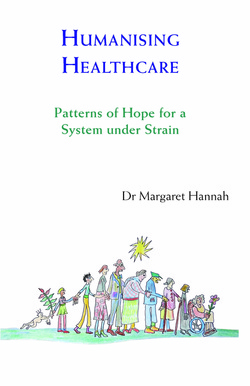To Buy the Paperback, visit the book's home pageImprint: Triarchy Press
Published: November 2014 Format: Paperback List Price: £12.00 Extent: 152pp. Size: 14 x 21.6 cm ISBN: 978-1-909470-44-6 Humanising Healthcare: Patterns of Hope for a System Under Strain Margaret Hannah - See more at: http://webcache.googleusercontent.com/search?q=cache:3sUR4g9TS0AJ:www.triarchypress.net/reviews---humanising-healthcare.html+&cd=2&hl=en&ct=clnk&gl=uk#sthash.qfvbKjtb.dpuf |
Humanising Healthcare:
Patterns of Hope for a System Under Strain Margaret Hannah A practical strategy for transforming the UK and other healthcare systems... offering an affordable, sustainable and compassionate alternative to the present mess.
|

